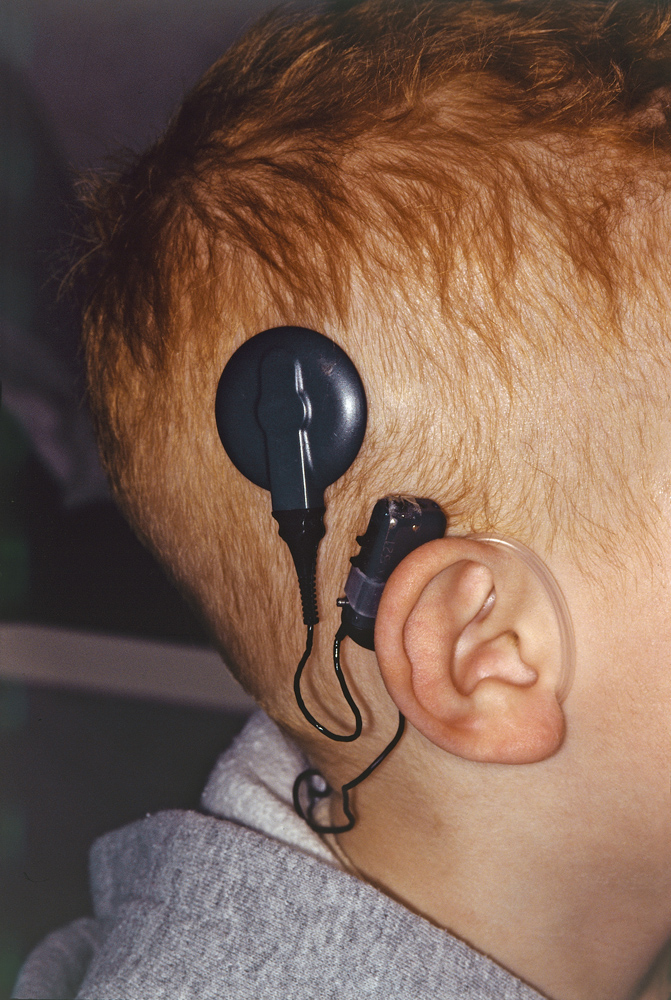TORONTO – A baby girl who was profoundly deaf clearly heard her mother’s voice for the first time as her two cochlear implants were turned up at the Hospital for Sick Children on Monday.
Fourteen-month-old Braydy Abbott of Whitby, who was dressed all in pink, started crying as the volume on the world around her was switched on.
"She’s usually a happy baby, so any time you hear her cry is heartbreaking but not today," said her mother Danielle Abbott, 30.
"It was quite moving for me to witness that instant sensation," said Abbott, who said she and her husband Jamie, 34, hugged their daughter and Abbott told her "I know it’s scary. Mommy loves you."
After the family got home, they put on "We Are The World," and Braydy put up her hands and started dancing and it "brought tears to my eyes and it’s something I’ll never forget in my life," Abbott said.
Dr. Blake Papsin, who performs cochlear implant surgeries at the hospital, said babies "usually react by crying because it’s new and loud."
The miraculous moment came on the day Ontario announced it is cutting the wait time in half for people with severe hearing loss who are waiting to get the device inserted.
Spending has been amped up to the tune of an additional $5.9 million over the next year so 184 additional cochlear devices can be implanted in children and adults. About 190 operations are normally performed each year.
Health Minister Deb Matthews said the government is spending the money on the implants instead of reducing wait times for other procedures because children were paying too high a price for waiting.
"There were children who were falling further and further behind because they didn’t have the implants," she said.
About 10 per cent of Ontarians with severe hearing loss can benefit from the procedure, which involves placing electrodes in the inner ear attached to a microphone outside the ear and wired to an external speech processor.
Humber College broadcast journalism professor Paul Cross said the procedure has been life changing for his eight-year-old son Keeford.
His son’s first implant was installed at Sick Kids in May 2004, and he got his second one in April 2005 but only because he was accepted into a study because the government didn’t fund bilateral implants for children back then.
Cross said the decision to allow his then-infant son, who was profoundly deaf, to have the neurosurgery was clear.
"He has the opportunity to have the ability to be able to hear, and to learn, to listen and to speak," said Cross.
Years later, his son’s speech is impeccable and Keeford has a fabulous vocabulary, said Cross.
"He studies music, he takes piano lessons and violin lessons and loves music and that’s something that we initially never dreamed he would have," Cross said.
The Hospital for Sick Children marked the 1,000 implant milestone with a celebration last month. The surgery is also performed at The Ottawa Hospital, Children’s Hospital of Eastern Ontario, London Health Sciences Centre and Sunnybrook Health Sciences Centre.
NDP health critic France Gelinas said having the operation is still a controversial decision in the deaf community.
"But once a parent makes the decision to have cochlear implant, those years long waiting lists makes no sense," she said.
Gelinas said some children who are diagnosed with severe hearing loss as infants are having to wait until they’re school aged before they get implants, which she said is far too long.
"It’s an awful cost for that child to pay for that wait time," said Gelinas.




Comments